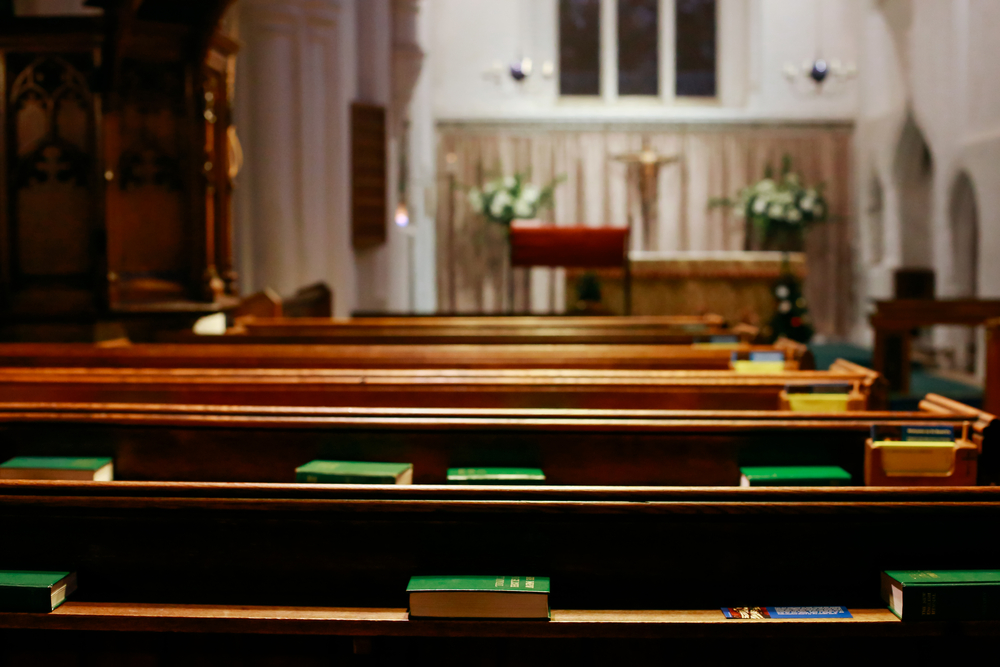Freedom of Religion Is Not Absolute

This article has a set of discussion questions tailored for classroom use. Click here to download them. To see a full list of articles with discussion questions and other resources, visit our “Educational Resources” page.
On April 7, 2020, prior to the Easter Holiday on Sunday April 12, 2020, Kansas Governor Laura Kelly issued an executive order which, among other things, had the effect of limiting the size of religious gatherings to fewer than ten people. Gov. Kelly’s order differed from similar stay-at-home orders issued by the governors of other states during the COVID-19 pandemic, like Florida’s Gov. Rick DeSantis, in that it did not include an exception for religious services. Subsequently the Legislative Coordinating Council of the Kansas State Legislature voted to revoke nearly all of Gov. Kelly’s emergency powers asserted in her executive order. Gov. Kelly then sued the Legislative Coordinating Council (LCC) for attempting to impede her constitutional powers as the executive of Kansas. Subsequently the Kansas Supreme Court upheld Gov. Kelly’s order, thus overturning the vote of the LCC.
The reporting on this case frames it as a decision between public health and religious liberty. This was, in fact, one of the stated concerns of the Kansas State Legislature’s LCC. However, the Kansas Supreme Court’s decision did not directly touch on issues of religious liberty. Instead the court reached its decision on procedural grounds, arguing that the Kansas State Legislature in general could not be a party to this lawsuit and that further the LCC did not have the authority in this instance to revoke Gov. Kelly’s executive order. That is, the LCC’s vote was null and void, as if it had never occurred.
Let us suppose, however, that the court had deigned to examine the constitutionality of Gov. Kelly’s order with respect to freedom of religion. Would they inevitably have found that the freedom of religion of the citizens of Kansas has been impaired? After all, the First Amendment in the US Bill of Rights says that Congress shall make no law restricting the free exercise of religion. Further the Kansas Constitution’s Bill of Rights says something similar in its seventh section, stating that its citizens will never have their right to worship God according to their conscience infringed. Despite this uncompromising rhetoric, it is not a forgone conclusion that the court would have found in favor of the LCC.
No person’s rights exist in a vacuum. Each right that one person bears creates corresponding obligations on the part of other people, groups, or institutions. Your right to the free exercise of religion creates an obligation on the part of various levels of government, at the very least, to refrain from interfering in how you choose to worship. However, that doesn’t allow you to do anything you please to me under the auspices of your religion. My own right to religious freedom, among the others I bear, must also be safeguarded by the government. Should your freedom of religion come into conflict with some right of mine, some form of adjudication would be needed. In other words, which have been attributed to numerous writers, “Your rights end where my nose begins.”
Here we can make sense of an important concept in arguments about constitutional law—the idea of a strict scrutiny. A case in which it is alleged that a fundamental right has been infringed, or in which a law is alleged to be enacted or enforced selectively against a “suspect classification” (e.g., religion or nationality) compels the court to review that case under standards of strict scrutiny. Among other things the government must demonstrate that its actions, where they infringe upon a fundamental right or disproportionately affect a protected group, do so for a compelling interest. What might such an interest be? For example, protecting another group’s fundamental rights. Hence the government may restrict your freedom of religion, to the minimum extent possible, if doing so is an effective and direct way to protect other citizens’ right to life. (That is, in judicial jargon, the government’s actions are “narrowly tailored” to achieve its compelling interest.)
Do orders like Gov. Kelly’s satisfy a strict scrutiny test? They clearly do. The state has a compelling interest to protect the lives of its citizens. Moreover, the restrictions laid out by stay-at-home orders are narrowly tailored; they prohibit physical gatherings of more than ten people, except for essential activities. This is narrow tailoring because it limits the breadth of the restrictions as much as possible. The restrictions would fail to be narrow if they, for example, forbade any people from coming within ten feet of each other for any purpose whatsoever. Nor are virtual gatherings forbidden. (Many worshipers are taking advantage of various teleconferencing technologies to observe their religious holidays responsibly.) Further, any gatherings that do occur should involve significant physical distance between each participant. These requirements are in line with epidemiological guidelines for minimizing the likelihood of viral spread by bodily contact and aerial exchange. Hence the restrictions are also directly linked to the achievement of the compelling interest to protect the lives of citizens.
Is all of the grand rhetoric about inviolable and inalienable rights just so much hot air, then? What can it mean that Congress shall make no law limiting the free expression of religion if it is acceptable that people should sometime be limited in the expression of their religion? It means simply that the government—or at least parts of it, occasionally—realizes that rights are things held in common by all citizens at once. The adjudication of conflicting rights claims ought not be interpreted as a decision that some kind of right, or some particular person’s right, has mysteriously evaporated for a time. Rather it ought to be interpreted as courts figuring out exactly how all citizens can bear all fundamental rights at all times. Only a narrow and selfish view of your rights can lead you to insist that you can indulge yourself at the cost of other citizens’ life and liberty.




